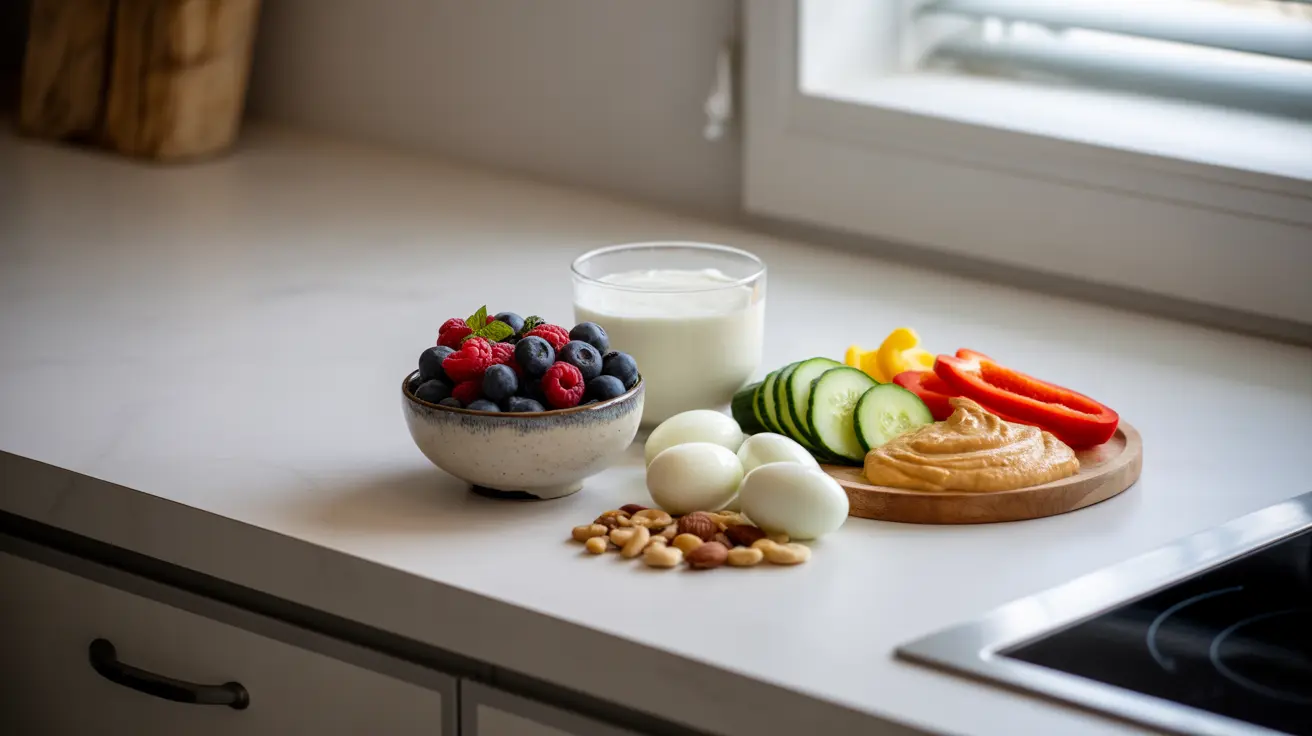Living with diabetes requires careful attention to food choices, and this extends to snacking habits. The right snacks can help maintain stable blood sugar levels while keeping you satisfied between meals. Understanding which snacks work best for diabetics is crucial for maintaining overall health and preventing unwanted blood glucose spikes.
In this comprehensive guide, we'll explore diabetes-friendly snack options that combine taste with proper nutrition, helping you make informed choices for better blood sugar management.
Protein-Rich Snacks for Blood Sugar Control
Protein plays a vital role in managing blood sugar levels and keeping you feeling full longer. Here are some excellent protein-packed options:
- Hard-boiled eggs
- Greek yogurt
- String cheese
- Turkey roll-ups
- Cottage cheese
These protein-rich choices help slow down digestion and prevent rapid blood sugar fluctuations, making them ideal for people with diabetes.
Fiber-Forward Options That Keep You Satisfied
Dietary fiber is essential for blood sugar management and digestive health. Consider these fiber-rich snack choices:
- Raw vegetables with hummus
- Apple slices with almond butter
- Chia seed pudding
- Whole grain crackers with cheese
- Mixed berries
The combination of fiber and protein helps provide sustained energy while maintaining stable blood glucose levels.
Smart Portion Control and Timing
Even with diabetes-friendly foods, portion control remains crucial. Here are some guidelines for smart snacking:
- Keep snack portions between 100-200 calories
- Space snacks evenly between meals
- Measure portions rather than eating from packages
- Plan snacks ahead to avoid impulsive choices
Healthy Fats for Sustained Energy
Including healthy fats in your snacks can help slow digestion and provide lasting satisfaction. Consider these options:
- Mixed nuts (handful portion)
- Avocado on whole grain toast
- Seeds (pumpkin, sunflower)
- Natural nut butters with celery
Snacks to Avoid with Diabetes
Some snacks can cause problematic blood sugar spikes and should be limited or avoided:
- Processed sweet treats
- Regular sodas and sugary drinks
- White bread and refined grains
- Candy and chocolate (except sugar-free dark chocolate in moderation)
- Dried fruit without protein pairing
Frequently Asked Questions
What are the best snacks for diabetics to help manage blood sugar levels and prevent spikes?
The best snacks for diabetics combine protein, fiber, and healthy fats. Examples include Greek yogurt with berries, a small apple with almond butter, or a handful of nuts with cheese. These combinations help prevent blood sugar spikes while providing sustained energy.
How can a snack with protein, fiber, and healthy fats help someone with diabetes feel full and keep blood glucose stable?
This combination works because protein and fat slow down digestion, while fiber helps regulate blood sugar absorption. Together, they provide steady energy release and prevent rapid glucose fluctuations, helping maintain stable blood sugar levels for longer periods.
Are hard-boiled eggs, yogurt with berries, and nuts safe and effective snack choices for people with diabetes?
Yes, these are excellent choices for diabetics. Hard-boiled eggs provide protein and healthy fats, yogurt with berries offers protein and fiber with natural sweetness, and nuts contain healthy fats and protein that help maintain stable blood sugar levels.
What snacks should people with diabetes avoid to keep their blood sugar under control?
People with diabetes should avoid snacks high in refined carbohydrates and added sugars, such as candy, cookies, regular sodas, and processed snack foods. These items can cause rapid blood sugar spikes and offer little nutritional value.
How do portion size and choosing whole foods make a difference when snacking with diabetes?
Proper portion sizes help control calorie and carbohydrate intake, which is crucial for blood sugar management. Whole foods typically contain more fiber and nutrients than processed options, helping to slow down digestion and prevent blood sugar spikes. Measuring portions and choosing minimally processed foods makes a significant difference in blood glucose control.




